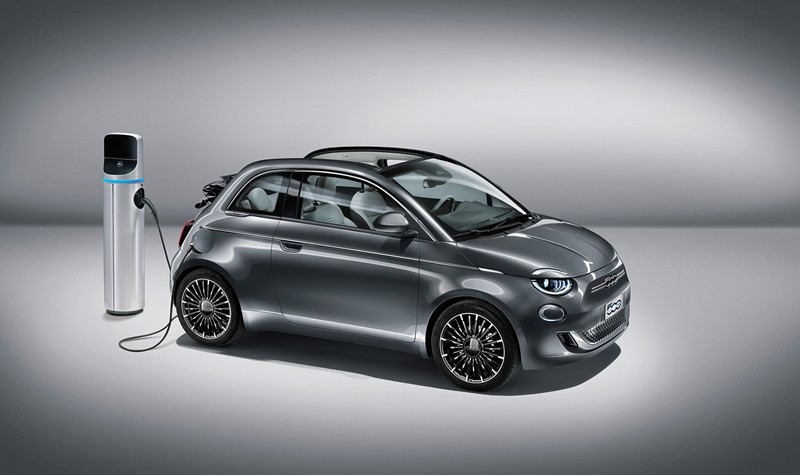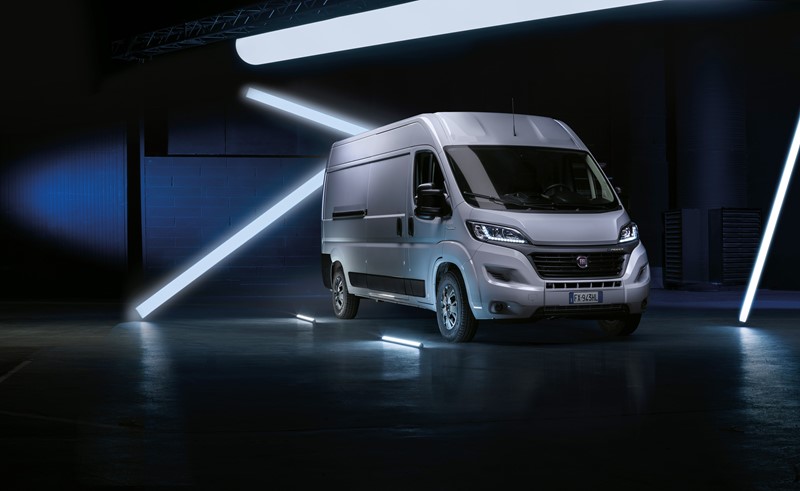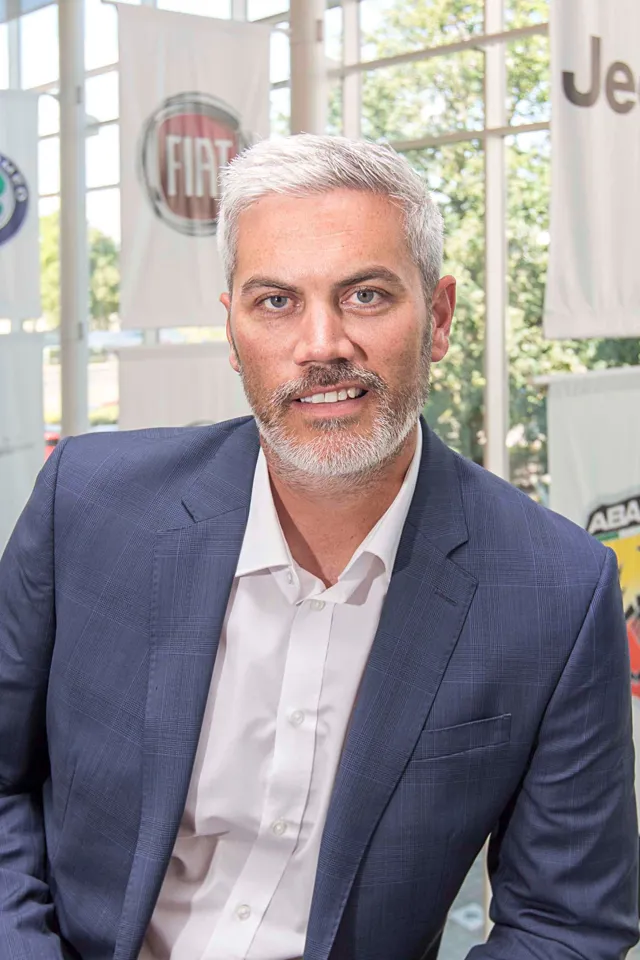You could forgive Iain Montgomery for describing the past nine months as a baptism of fire. When he was appointed FCA UK fleet and remarketing director in January, little did he – or anyone else – know that just two months later he would be implementing contingency plans and customer support packages as the country went into a coronavirus-induced lockdown.
Yet, despite the inevitable stresses created by a halt to global production, a total transformation in day-to-day working practices and a market-wide collapse in new car registrations, Montgomery retains his composure. Yes, it was challenging, he says, but the key was to keep communication channels open to preserve business relationships.
The timing added complications: FCA was in the process of moving to a new partner for its outsourced field team and was working on a business centre expansion plan. It was also preparing for a host of new product launches in the second half of the year, some of which have now been put back a few months.
Nevertheless, minds were concentrated on the job at hand, and action was swift and decisive.
“We knew we had strong relationships with NHS Trusts, and we had to keep them running from both a supply and maintenance point of view,” Montgomery says. “Supply of ambulances never slowed down. We maintained our volumes with utilities companies, and we’ve worked to keep council fleets going. And we’ve kept lines of communication open with all customers.”
FCA implemented a range of measures, including individual solutions. “These could be as simple as holding stock at the port, so they didn’t have to start the payment. Cashflow at this time is key, especially for smaller businesses.”
He adds: “Back in February, we couldn’t imagine closing the business but still maintaining our presence remotely. But here we are; we’ve done it.”
Many positives came out of the new ways of working, including greater recognition of the importance of being proactive towards customers’ changing needs. Digital selling has flourished in an industry more used to face-to-face customer relationships, while online working has improved efficiencies in an environmentally friendly way.
Business is now returning with a clear-cut emphasis on hybrid and electric. Montgomery predicts a transition as employees do less mileage, with many no longer commuting to work or holding face-to-face meetings.
“We are looking at lower mileage contracts and rentals, but we also expect growth in the car club platforms – do people want to own cars if they are sitting on their driveways?” he asks. “But we’re still seeing the number of tenders increasing and we can now tick more boxes with our model line-up.”
Three key pillars
Fleet sizes might not be the thing that changes, but car size and fuel choice most certainly will. The recovery will, therefore, be product-led, which plays to FCA’s advantage.
New product is one of three key pillars to Montgomery’s strategy, set out at the start of the year; the others are partnerships with leasing companies and customers, and sustainable growth in true fleet. All three remain core objectives, even if some of the timings have shifted.
Appointed following the departure of Andrew Waite (now network development director at Hyundai), Montgomery has extensive automotive experience in sales, remarketing, dealers, fleet account management, direct channels and corporate accounts, giving him ideal depth and breadth of knowledge for his latest position.
That depth and breadth is matched by the FCA model line-up, which stretches from city car (500) to large van (Ducato), mass market (Fiat) to premium (Alfa Romeo), and sporty (Abarth) to multi-purpose (Jeep). Its breadth was only limited by the lack of alternative fuel offerings, something now being addressed.
“Our range is now better aligned with the fleet market with the launch of new hybrid and electric models,” says Montgomery. “As a total proposition, we are in the best place we’ve been for a long time. We now have to make sure we have a plan for the new products with a clear objective of where they sit and their route to market.”
Fiat and Jeep both have full electric and hybrid models coming to market, offering preferential cost of ownership for fleets and lower benefit-in-kind taxation for drivers.
Montgomery is excited about the plug-in hybrid Renegade and Compass which are “4x4 capable but nothing like we’ve had before” and put Jeep “back in the game”, and the full electric Fiat 500 which will come to market in early 2021.
“The 500 BEV (below) is our ground-breaking product,” he says. “The initial feedback and interest registered has been very positive. We expect small numbers to begin with but a steady uptake. The zero BIK and lower cost of ownership are compelling. The only thing stopping more rapid uptake is range versus lifestyle, but even that is changing as people travel fewer miles.”


Electric is also flowing through Fiat Professional with the Ducato (above), which is attracting growing interest from the last-mile delivery operators.
“For vehicles that do 100 to 200 miles per day, a full electric van makes sense,” Montgomery says. “There is also the visual benefit to fleets running on zero emissions, so we are seeing a lot of interest from utilities companies.”
But while electric is grabbing the headlines, FCA still believes there is a place for petrol and diesel. It isn’t ready to press the stop button just yet.
“There are ongoing developments to make them more efficient,” Montgomery says. “In some industries, such as transport and logistics, diesel makes sense – but diesel-hybrid is the real-world solution. We will see petrol continue to rise and I can’t see efficiency improvements stopping.”
He recognises that, to achieve its ambitions, FCA needs to “look at the market differently” to more established brands, notably in the premium sector.
“With Alfa Romeo, we go against Audi, BMW and Mercedes-Benz in a sector where we win plaudits for our performance,” Montgomery says. “With our model-year 20 changes, we have enhanced the autonomous driving technology to take the Stelvio to another level. We can stand toe-to-toe when competing for customers because we have the technology to match the design.
“There’s a lot of love and passion for the brand but our challenge is to overcome stigma on reliability. We have to get people into the car so they can experience the phenomenal drive and see that it is a viable alternative to the ‘Big Three’.”
A long-term plan
For Fiat, the plan includes moving away from short-term high cost business – last year it almost halved its rental sales – to build residual values and improve the cost of ownership.
“We can’t do short-term business growth with short-term rewards, which causes suffering in the long-term,” Montgomery adds.
To support the launch plan, FCA is implementing back-office structures with a new purpose-built web portal, making it easier for fleet customers to access information, advice and assistance.
Covering all five of the group’s brands, the FCA Fleet Hub has been designed to meet the needs of fleet and business users and to improve the customer experience, offering preferential finance deals, BIK calculators, online quotations, advice and links to the 23 dedicated FCA business centres.
FCA is looking to expand its network of business centres to 25 by the end of the year. It requires investment in dedicated fleet sales staff, but the rewards are there for retailers.
“We can demonstrate a link between our success in fleet and having a business centre in the area,” says Montgomery. “These businesses understand the customer needs from start to finish; they understand how a company car scheme works so the fleet manager is happy and the end user driver is happy.”
The objective is to grow fleet market share, but it has to be done in the right way for the business.
“We have to be confident we can grow through sustainable business with ongoing relationships with customers and leasing companies,” says Montgomery. “Whether it’s one car or a fleet, we must understand their needs and provide a solution. That’s key to maintaining a strong relationship. Our success will be built on partnerships with people and customers, strengthening the dealer network and making sure we maximise the opportunities presented by our product offering.”





















Login to comment
Comments
No comments have been made yet.